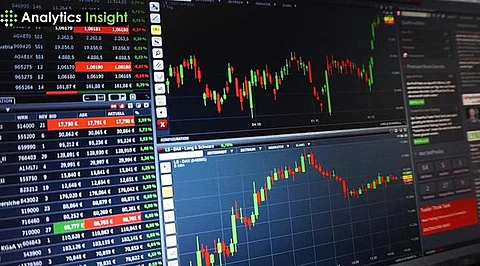

US stocks declined on Thursday after wholesale-level inflation increased more than anticipated, interrupting a recent rally that had driven indexes to new highs. The S&P 500 Index fell by 0.3%, while the NASDAQ 100 Index decreased by 0.1%.
This came after the US Bureau of Labor Statistics reported that the Producer Price Index (PPI) surged by 0.9% in July, compared to no change in June. Year-over-year, the PPI rose by 3.3%, significantly higher than the 2.5% increase that economists had predicted.
The increase in PPI raised fears of consumer inflation. Brian Jacobsen, chief economist at Annex Wealth Management, pointed out that the rise in PPI was mainly attributable to expansions in margins by wholesalers and retailers, but not the immediate impact of tariffs on consumer prices.
Jacobsen pointed out that although the headline rise in PPI is frightening, the underlying figures are more indicative of the actual trend. The statistics brought up fresh concerns over the impact of the increased costs of production, which may ultimately contribute to the cost of consumer goods, raising yet another level of doubt among investors.
Clark Geranen, a chief market strategist at CalBay Investments, shared similar sentiments, noting that tariffs are escalating inflation, making it difficult to determine whether or not the Federal Reserve can adjust interest rates down. This inflationary pressure challenges expectations that the Fed will enact a rate cut in September, which can change short-term market dynamics.
Following the release of the PPI data, market participants adjusted their expectations for a September interest rate cut by the Federal Reserve. Traders had previously priced in a quarter-point reduction, but the latest inflation data reduced the likelihood of such a move. As of Thursday morning, market probabilities show only a 5% chance that the Fed will hold rates steady at its next meeting.
This shift in expectations stems from growing concerns about rising inflation, particularly from the effects of tariffs and other production costs. According to Chris Larkin, managing director at E-Trade from Morgan Stanley, the data does not completely rule out a rate cut but raises questions about its timing and extent.
With the labor market showing signs of strength, as evidenced by the drop in weekly jobless claims, the Fed may have less reason to ease monetary policy in the near future.
With traders reevaluating their rate cut forecasts, the spotlight is now shifting to retail sales data to be published on Friday. Retail sales analysts predict a 1.0% gain in July that would offer more insight into consumer health as elevated inflation is reported. This report might provide the Fed with a clearer view of the economy, and it could also affect its future interest-rate decisions.
In the stock market, certain companies experienced the immediate effects of the inflation data. Tapestry, the parent company of Coach and Kate Spade, saw its stock fall 16.9% after warning that tariffs could reduce profitability by $160 million in the coming year. Deere & Co. also experienced a decline in its stock price despite reporting stronger-than-expected profits as investors grew concerned about the impact of economic uncertainty on future earnings.
Also Read: US Stock Market Today: US Stocks Soar on CPI Report, S&P 500 Rises 0.6%, Nasdaq 100 Gains 0.7%
Join our WhatsApp Channel to get the latest news, exclusives and videos on WhatsApp
_____________
Disclaimer: Analytics Insight does not provide financial advice or guidance on cryptocurrencies and stocks. Also note that the cryptocurrencies mentioned/listed on the website could potentially be risky, i.e. designed to induce you to invest financial resources that may be lost forever and not be recoverable once investments are made. This article is provided for informational purposes and does not constitute investment advice. You are responsible for conducting your own research (DYOR) before making any investments. Read more about the financial risks involved here.
